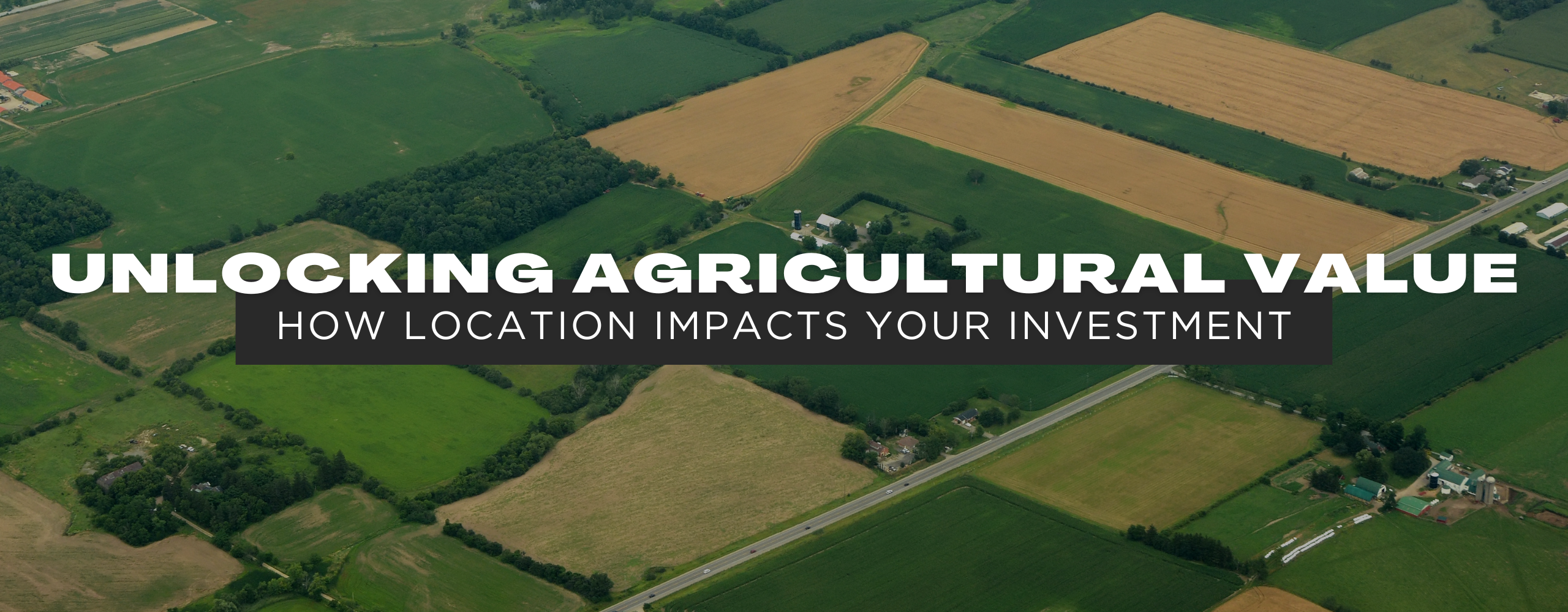
Key Factors in Location Selection
When investing in agricultural real estate, location is a paramount consideration. The value and potential returns of farmland are heavily influenced by its geographical location. Key factors to consider include soil quality, climate, and access to water resources. Land with fertile soil and favorable climatic conditions for crops can significantly enhance productivity and profitability (RPRealtyPlus) (All Around Moving). Additionally, proximity to water sources ensures sustainable irrigation, which is crucial for consistent agricultural output.
Economic Growth and Infrastructure
The economic development of an area also plays a vital role in determining the desirability of agricultural land. Regions experiencing economic growth and infrastructural development often provide better market access and increased land value over time. For instance, areas near major highways or developing urban centers can benefit from improved logistics and higher demand for agricultural products (RPRealtyPlus) (All Around Moving). Investing in such locations can lead to higher returns as these regions continue to grow and attract more businesses.
Accessibility and Amenities
Accessibility to markets, transportation, and essential services can significantly impact the success of agricultural investments. Farmland that is easily accessible to major roads and marketplaces allows for efficient transport of goods, reducing costs and increasing market reach (WhoTimes –) (All Around Moving). Additionally, proximity to essential services such as equipment suppliers, agricultural advisors, and financial institutions can provide valuable support to farmers, enhancing overall productivity and profitability.
Environmental and Legal Considerations
Environmental factors, including susceptibility to natural disasters and climate change impacts, are critical in selecting agricultural real estate. Regions prone to flooding, droughts, or other natural disasters may pose significant risks to agricultural investments (All Around Moving). Furthermore, understanding local zoning laws and regulations is essential to ensure that the land can be used as intended without legal hindrances. Compliance with environmental regulations and sustainable farming practices can also enhance the long-term viability of the investment.
Investing in agricultural real estate requires a comprehensive understanding of the location’s various aspects. By considering factors such as soil quality, economic growth, accessibility, and environmental risks, investors can make informed decisions that maximize returns and contribute to sustainable agricultural practices (WhoTimes –) (RPRealtyPlus) (All Around Moving).
Share This Blog!
Facebook
Twitter
LinkedIn
Email


